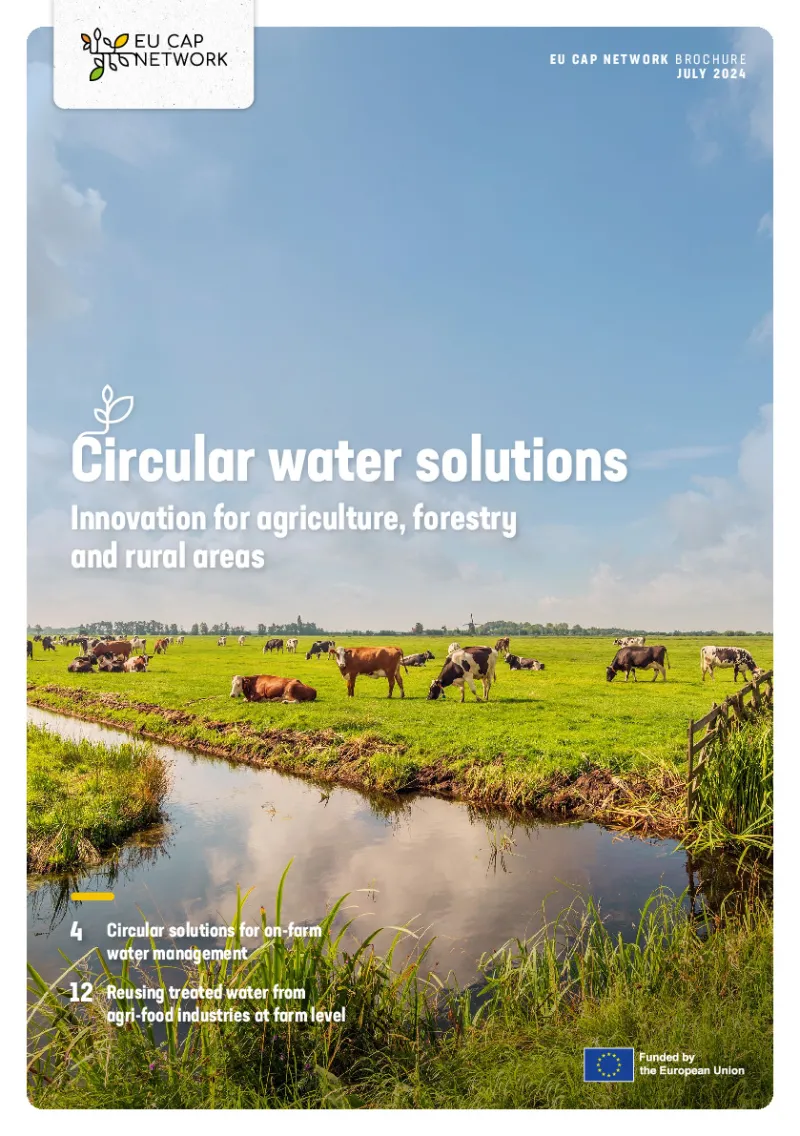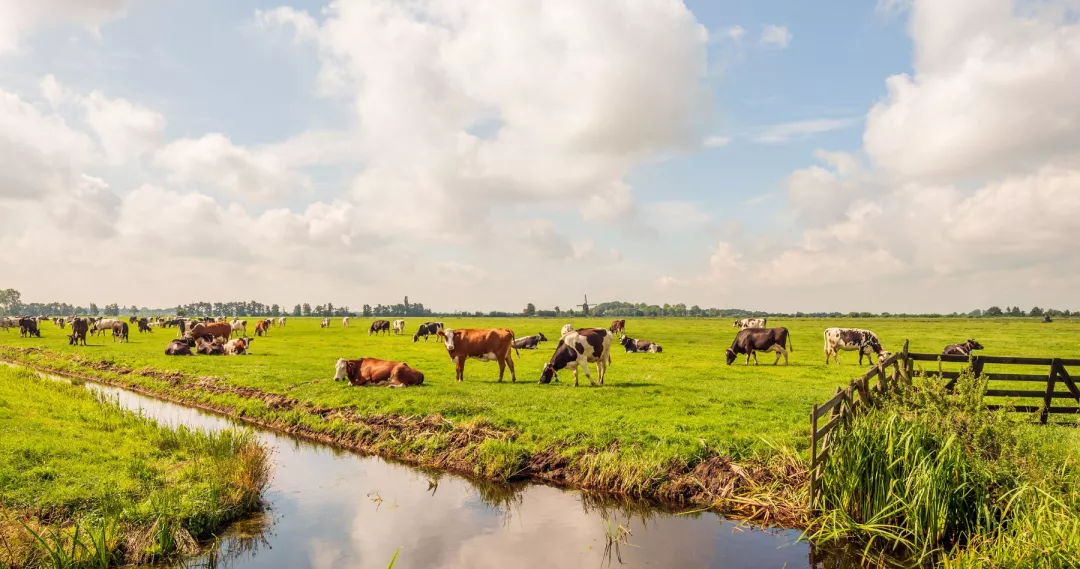Circular water solutions
- Innovation, knowledge exchange & EIP-AGRI
- Climate and Climate Change
- Sustainability
- Fostering Knowledge & Innovation
This brochure highlights solutions for sustainable and circular water management. It features ways to efficiently save, recycle and reuse water sources for on-farm use through innovation, collaboration and knowledge exchange.


Clean water is essential for a thriving agriculture and forestry sector and for the quality of life in rural communities. EU farmers are facing an increasing water demand to safeguard food security for growing populations, while a number of challenges are affecting the availability of water, including pollution from fertilisers or chemical residues, sedimentation caused by soil erosion and overuse. In addition, new climate and weather patterns are increasingly leading to droughts, irregular rainfall, floods and water shortages, heavily affecting agriculture, forestry and rural areas.
Increasing water scarcity calls for innovative practices and tools to make more efficient use of available water resources. Circular water systems offer plenty of opportunities to save, recycle and reuse water for on-farm use.
Water that is used within farming processes (e.g. vegetable cultivation or livestock production) can be filtered and reused several times for on-farm purposes. When appropriately treated, wastewater from agricultural production or from agri-food industries can also be recycled for further reuse.
Harvesting rainwater from farm or greenhouse roofs or fields can offer an additional source of water which, when purified, can be used as drinking water for animals, irrigation for crops, or for other uses on the farm.
Precision irrigation systems and other decision support tools can help farmers optimise their water use, cutting costs in the process. Specific agroecological measures may help retain water and nutrients in the soil and create more sustainable farming systems that are more resilient to droughts or water shortages.
Nature-based solutions in circular water management make use of natural elements to store, retain or filter water, to regulate water flow and improve nutrient recycling. Natural ponds can store water, while constructed wetlands and sedimentation basins can capture runoff water from agricultural fields and support natural filtration. The stored water can recharge aquifers or other groundwater reservoirs, and be used during dry periods when natural water sources are limited.
This brochure highlights solutions for sustainable and circular water management. It features examples of innovative projects that tackle water-related challenges by efficiently saving, recycling and reusing water sources for on-farm use, through innovation, collaboration and knowledge exchange.
Author(s)
EU CAP Network
